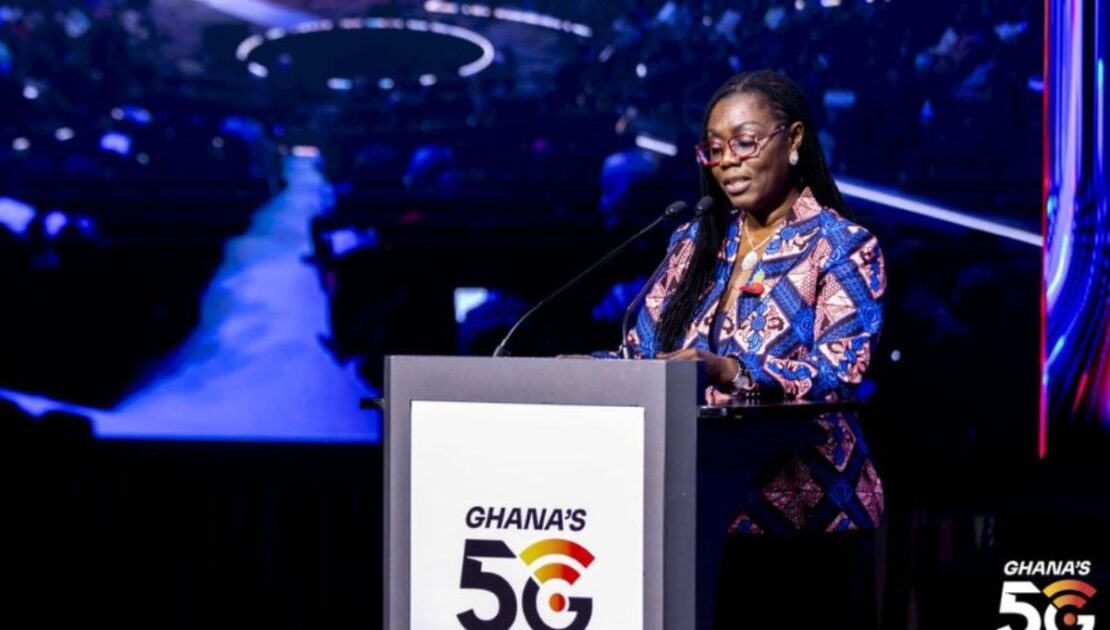[mc4wp_form id=”2320″]
Ghana’s 5G Rollout Faces Uncertainty Amid Industry Hesitations
-
January 8, 2025
- Posted by: Evans Asare

Ghana’s 5G rollout faces uncertainty amid industry hesitations. The timeline for Ghana’s 5G rollout remains unclear, as telecom operators in the country have yet to utilize the newly launched 5G wholesale network. According to Ghana’s Minister of Communications and Digitalisation, Ursula Owusu-Ekuful, the adoption of 5G services depends on telecom providers leasing capacity from this infrastructure to serve their customers.
Ghana launched its first 5G wholesale network two months ago, marking a significant step toward advanced connectivity. However, during an interview with TV3 Ghana, Owusu-Ekuful acknowledged that progress has stalled, as local telcos have not yet embraced the opportunity to deliver 5G services.
“It’s a wholesale infrastructure. We built it, and now it’s up to the telecom companies to buy capacity and deliver it to their subscribers,” she explained when addressing questions on the delay in commercial rollout.
Ghana’s Vision for 5G
In November 2024, the Ghanaian government announced its intention to roll out 5G services, with an ambitious plan for MTN Ghana, Airtel Ghana, and Telecel to bring 5G connectivity to cities like Accra, Kumasi, and Takoradi by year-end. This followed an earlier policy shift in August 2023, where the government opted against auctioning 5G spectrum, instead establishing a neutral shared infrastructure to deliver 4G and 5G nationwide.
Despite these initiatives, the actual deployment of 5G remains in limbo. As the country approaches a change in government, questions linger about the future of these plans and whether new leadership will provide clarity or direction on 5G deployment.
Current State of Connectivity
While Ghana strives for 5G adoption, the majority of mobile subscribers are still reliant on 4G and 3G services. Data from market research firm Omdia reveals significant disparities in connectivity levels:
- MTN Ghana: Of its 28.6 million subscribers, only 7.6 million were using 4G by the third quarter of 2024.
- Telecel Ghana: Out of 6.6 million subscribers, just 430,000 had transitioned to 4G.
- AT Ghana: Most of its 5 million subscribers were still on 3G.
- Glo Mobile: Among its 350,000 subscribers, the majority also relied on 3G.
Challenges and Next Steps
Ghana’s decision to implement a shared infrastructure model reflects a bold and innovative approach, but its success hinges on collaboration between the government and telecom operators. As the nation grapples with these challenges, stakeholders must find common ground to ensure 5G’s potential is realized for economic growth and digital transformation.
The question remains: Will telecom providers step forward to drive Ghana’s 5G future, or will the promise of advanced connectivity continue to face delays?

oFUzWfg7Nks